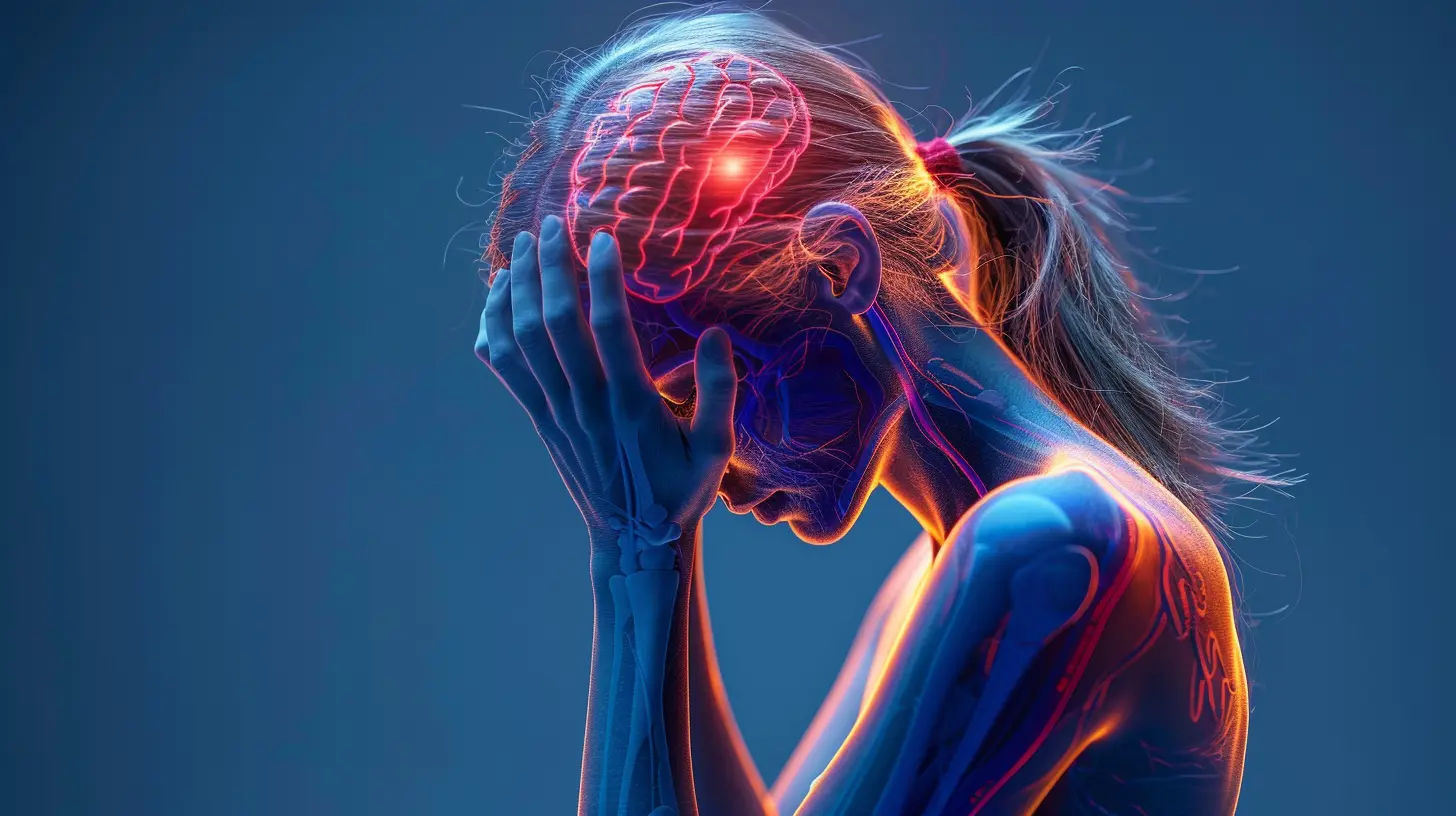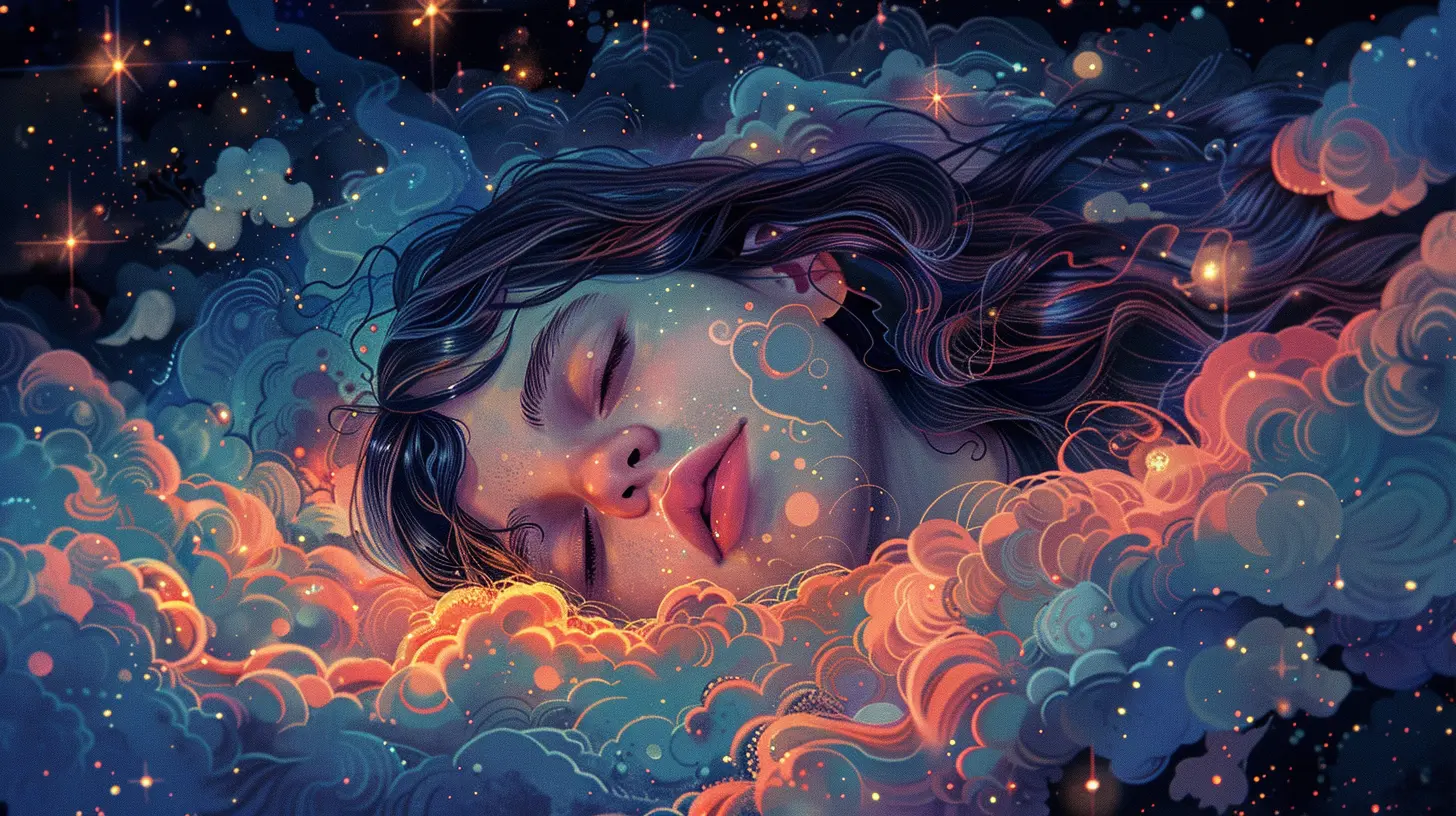The Link Between Sleep and Migraines: What Science Says
22 November 2025
Let’s be honest—there’s nothing quite like a good night’s sleep. You wake up refreshed, energized, and ready to head into your day like a superhero. But if you’ve ever been hit with a migraine after a sleepless night (or even after sleeping too much), you’re not imagining the connection. Science has a lot to say about the relationship between sleep and migraines, and spoiler alert: they’re more linked than you might think.
In this article, we’ll unpack the science behind this connection, give you tips on how to manage sleep to prevent migraines, and throw in plenty of real-life explanations. Don’t worry—no complicated medical jargon here. Just straightforward, helpful info you can actually use.
What Are Migraines, Really?
First things first: what exactly is a migraine?A migraine is not just a “bad headache.” It’s a complex neurological condition that can cause pulsing or throbbing pain—usually on one side of the head—along with nausea, sensitivity to light or sound, visual disturbances (hello, aura), and a whole list of other unpleasant symptoms.
Migraines can last for hours or even days, and they often interfere with daily life. For some people, they come like clockwork; for others, they strike out of the blue.
What triggers them? Lots of things, including hormonal changes, certain foods, stress, weather changes… and yes, sleep problems.
Understanding the Sleep Cycle
Before we get into the nitty-gritty of migraines and sleep, let’s briefly talk about how sleep works.Your body cycles through different stages of sleep in a fairly predictable pattern:
- Light Sleep (Stages 1 & 2): You’re dozing off but can still be easily awakened.
- Deep Sleep (Stage 3): This is where real restoration happens—tissue growth, immune boosting, etc.
- REM (Rapid Eye Movement): This stage is when dreams happen and your brain is almost as active as when you’re awake.
For healthy brain function, we need a balanced blend of all these stages. Disrupt any part of the cycle, and the body (especially the brain) starts freaking out.
How Lack of Sleep Triggers Migraines
Ever notice how skipping sleep seems to be a one-way ticket to Migraineville?That’s no coincidence. Here’s what’s going on:
1. Brain Overload
When you don’t get enough sleep, your brain doesn’t get a chance to clear out waste products. Kind of like skipping housecleaning for a week—things get messy fast. This buildup can irritate nerves and blood vessels in the brain, setting off a migraine.2. Lowered Pain Threshold
When you’re sleep-deprived, your body is more sensitive to pain. It’s like turning up the volume on everything. That slight head pressure that wouldn’t bother you on a good day suddenly feels like a jackhammer in your skull.3. Disrupted Serotonin Levels
Serotonin is a chemical messenger involved in mood, sleep, and pain regulation. Lack of sleep messes with serotonin levels, and guess what? Low serotonin has long been linked to migraines.So it’s not just in your head (well, it sorta is)—the science backs you up.
Can Sleeping Too Much Cause Migraines?
You might think the more sleep, the better, right? Well—not always.Oversleeping can actually be just as bad as sleep deprivation when it comes to triggering migraines. Why? Because both mess with your internal clock, also known as the circadian rhythm.
Think of your body like a finely tuned orchestra. When your sleep pattern goes haywire—whether from sleeping too little or too much—it throws your biological rhythm out of whack. And that can lead to neurochemical changes that light up the migraine pathway.
So yes, even sleeping in on the weekend could trigger a migraine. Cruel, isn’t it?
Sleep Disorders and Migraines: The Double Trouble
Let’s add another layer: sleep disorders.People who suffer from migraines are more likely to deal with sleep issues like:
- Insomnia – Trouble falling or staying asleep.
- Sleep Apnea – Breathing interruptions during sleep.
- Restless Leg Syndrome – Involuntary leg movements that disrupt sleep.
- Narcolepsy – Extreme daytime sleepiness.
These disorders don’t just ruin your sleep—they increase the frequency, intensity, and duration of migraines.
Interestingly, it also works in reverse: people with chronic migraines often report poor sleep. It’s a vicious cycle, and breaking it can feel like trying to untangle Christmas lights in the dark.
What Science Says About the Sleep-Migraine Connection
There’s no shortage of studies digging into this issue. Let’s take a look at a few fascinating findings:🧪 1. Poor Sleep Quality = More Migraines
A 2021 study in the journal Neurology found that people with poor sleep quality were more likely to experience frequent migraines. The participants who slept less than six hours a night had almost double the risk of having migraines compared to those who got 7–8 hours.🧪 2. REM Disruption and Migraine Frequency
REM sleep is critical for brain health. Researchers have found that people who suffer from frequent migraines often spend less time in REM sleep. So if you’re not dreaming much, you might be missing out on a vital healing process.🧪 3. Sleep Apnea May Worsen Migraine Attacks
Studies suggest that sleep apnea can be a hidden culprit in chronic migraines. People with undiagnosed sleep apnea often see major migraine relief once they start using CPAP (a machine that helps keep airways open during sleep).How to Improve Sleep and Reduce Migraine Risks
So, what can you actually do about all this?Glad you asked. Here are some tried-and-true tips for getting better sleep—and keeping migraines at bay:
🛏️ 1. Stick to a Sleep Schedule
Your brain loves routine. Try going to bed and waking up at the same time every day—even on weekends. Yes, that means no more Sunday sleep-ins. Bummer, we know.📱 2. Ditch Screens Before Bed
Blue light from your phone, tablet, or laptop can mess with your melatonin levels—a hormone that regulates sleep. Aim for gadget-free time at least an hour before you hit the hay.☕ 3. Watch the Caffeine
Caffeine can stay in your system for up to 8 hours. If you’re sensitive to it (and many migraineurs are), avoid coffee or caffeinated drinks after 2 p.m.🧘 4. Try Relaxation Techniques
Stress is a common migraine trigger, and it also ruins sleep. Try deep breathing, guided meditations, or even light stretching before bed. Your brain will thank you.🕯️ 5. Create a Sleep-Friendly Environment
Cool, quiet, dark rooms make the best sleep caves. Use blackout curtains, white noise machines, or eye masks if needed.🌿 6. Consider Natural Sleep Aids
Melatonin supplements, magnesium, or herbal teas like chamomile can help ease you into restful sleep. Just check with a doc before starting anything new.When to See a Doctor
If you’re doing everything right and still struggling with sleep and migraines, it’s time to call in the pros. A sleep specialist or neurologist can help identify underlying issues like sleep apnea or chronic insomnia and craft a treatment plan that actually works.You don’t have to suffer in silence—or in the dark, clutching your temples.
Final Thoughts: Sleep Isn’t a Luxury—It’s Migraine Medicine
Here’s the bottom line: sleep and migraines are deeply intertwined. Whether it’s too little sleep, too much, or poor quality snoozing—it can all feed into the migraine cycle. But the good news? You’ve got a lot more control than you think.By prioritizing good sleep habits and recognizing the signs of sleep disorders, you can reduce the frequency and severity of migraines—and just feel way better overall.
So next time you’re tempted to pull an all-nighter or binge-watch one more episode, remember: your future migraine-free self will thank you for turning in early.
all images in this post were generated using AI tools
Category:
Sleep DisordersAuthor:

Angelo McGillivray
Discussion
rate this article
1 comments
Drift Pope
Thank you for this insightful article! Understanding the connection between sleep and migraines is crucial for finding effective relief strategies. I appreciate the research shared here.
November 24, 2025 at 4:36 AM


